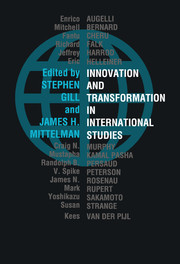Book contents
- Frontmatter
- Contents
- List of contributors
- Preface
- Acknowledgements
- Part I Rethinking and remaking the roots of global social and political theory
- Part II Political economy: the social and ecological anatomy of transformation
- Part III Transformation, innovation and emancipation in global political and civil society
- Part IV Reflections on global order in the twenty-first century
- References
- Index of names
- Index of subjects
Part III - Transformation, innovation and emancipation in global political and civil society
Published online by Cambridge University Press: 05 July 2011
- Frontmatter
- Contents
- List of contributors
- Preface
- Acknowledgements
- Part I Rethinking and remaking the roots of global social and political theory
- Part II Political economy: the social and ecological anatomy of transformation
- Part III Transformation, innovation and emancipation in global political and civil society
- Part IV Reflections on global order in the twenty-first century
- References
- Index of names
- Index of subjects
Summary
The objective of Part II is to develop methods and approaches to explore the meaning of transformation and innovation in terms of potentials for emancipation and democratisation associated with various social forces in global political and civil society. Political and civil society is defined broadly here to include the state, political and civic associations, the institutions of social and economic life, strategic relations and civilisational patterns.
Karl Polanyi's idea of the ‘double movement’ is a link between Parts II and III of this book and it enables us to see that some social forces that the authors are analysing may be far from benign – as was the case with the right-wing extremism and authoritarianism of the 1930s that produced new forms of state and helped to produce the increasingly violent conditions for the outbreak of the Second World War. Part of the problem of reconstructing world order involves the assessment of the nature, extension and depth of such forces operating locally and globally, and their potentials for democratisation or reaction. Some of the thrust of social movements of both right and left involves the way that they attempt – often in contradictory ways – to challenge the ‘common sense’ of a dominant set of social and political forces. That is, some subordinate forces or social classes seek emancipation in part through a challenge to not only the ideology but also the knowledge-forms representative of dominant forces.
- Type
- Chapter
- Information
- Innovation and Transformation in International Studies , pp. 135 - 137Publisher: Cambridge University PressPrint publication year: 1997



